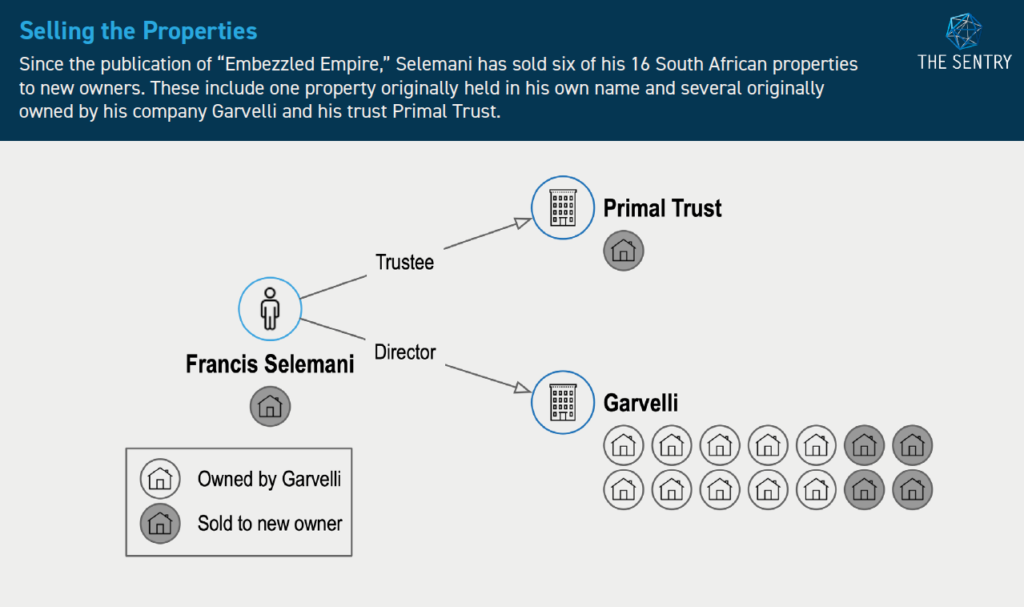November 2024
 Download the full alert
Download the full alert
In its November 2021 report “Embezzled Empire,” The Sentry revealed how Francis Selemani, the brother of former Democratic Republic of Congo (DRC) President Joseph Kabila, purchased numerous luxury homes in the United States and South Africa—at least in part, it appears, using funds diverted from the Congolese government. The report was published as part of Congo Hold-up, revelations by a consortium of organizations based on millions of leaked bank records obtained by the Platform to Protect Whistleblowers in Africa (PPLAAF) and Mediapart and shared with The Sentry by PPLAAF and the European Investigative Collaborations (EIC). Congo Hold-up was a rare opportunity to expose the inner workings of the kleptocratic machine and watch questionable funds flow into foreign jurisdictions such as South Africa. Since the launch of Congo Hold-up, The Sentry has found that six of Selemani’s 16 South African properties have been sold to new owners, with registration dates—the dates at which properties are transferred to new owners—after the publication of “Embezzled Empire.”
In its initial investigation, The Sentry revealed that accounts and companies owned or controlled by Selemani received more than $12 million from an obscure DRC-based company called Sud Oil through accounts held at BGFIBank in the DRC. Further investigation by members of the Congo Hold-up consortium showed that Sud Oil received at least $85 million in funds from Congolese government institutions, including the Central Bank of Congo and the DRC’s permanent mission to the United Nations (UN) in New York. Selemani and the Kabila family misappropriated public funds, including funds that originated in the US from the UN; transferred millions abroad, including to both the US and South Africa; and purchased millions of dollars in foreign real estate, including at least four properties in the US and 16 in South Africa.
In a series of operations that is a red flag for money laundering through real estate, Selemani had originally purchased several South African properties in his own name, but he then sold ownership in these properties to a company and a trust he controlled. At the time of the publication of “Embezzled Empire,” Garvelli, a South African company controlled by Selemani and his wife, owned 14 of the South African properties; Primal Trust, a South African trust whose trustees were Selemani and his wife, owned one of the South African properties; and one South African property remained in the name of Selemani and his wife, never having been sold to either Garvelli or Primal Trust. Six of these properties, including the ones owned by Primal Trust and Selemani himself, have since been sold to new owners who do not appear to be associated with Selemani or his family.
Once these six properties were sold to new owners, the opportunity for South African authorities to seize them—based on the outcome of their investigation into whether the real estate was purchased with the proceeds of embezzlement or other illicit activity—was significantly curtailed. South African authorities must act quickly to determine whether the remaining 10 properties were purchased with the proceeds of embezzlement and, if appropriate, freeze the properties and associated bank accounts without delay.

